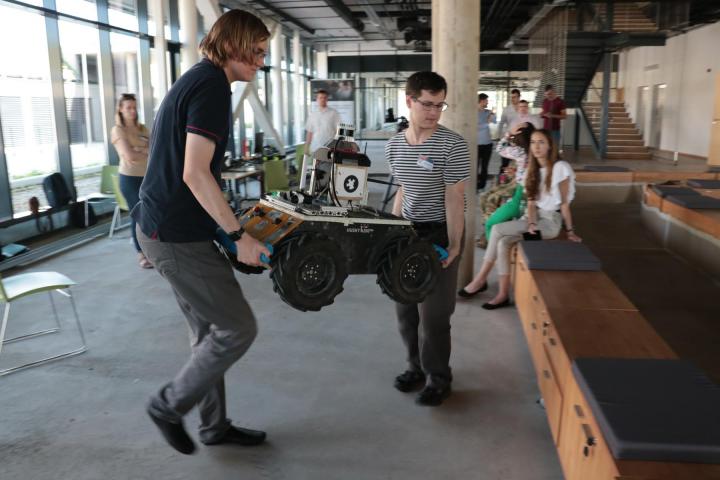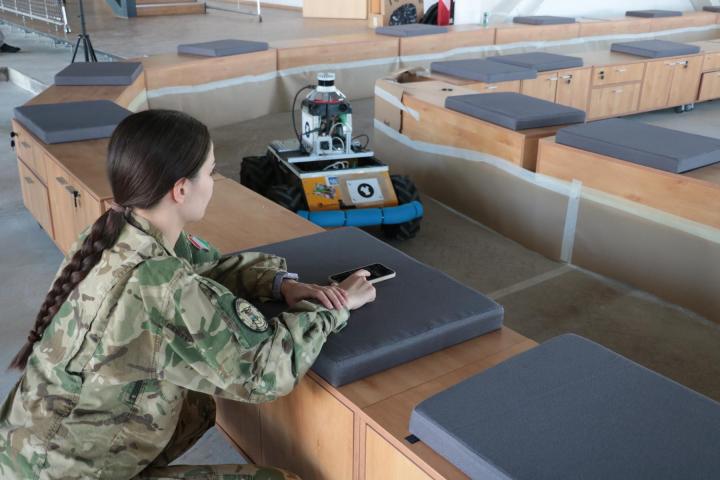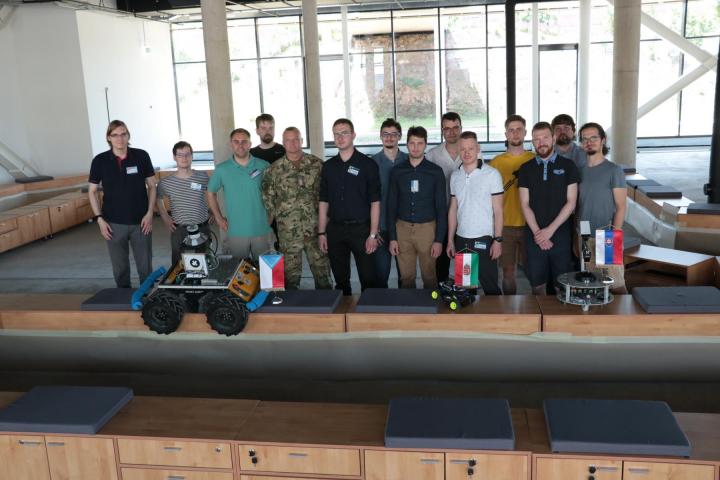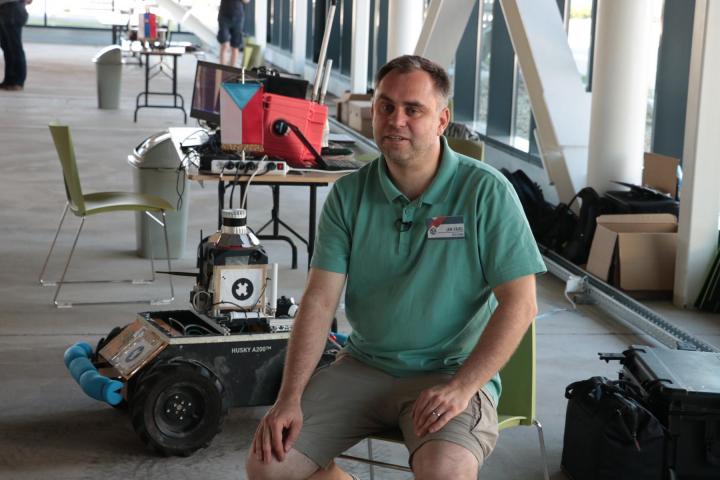
The Visegrad Group is currently chaired by Hungary and from this position it supports optimal cooperation between all the four countries, including in the area of defence cooperation. From 13 to 15 June, a meeting of the V4 Chiefs of Defence Staff was held in Debrecen, Hungary, which included a V4 Innovation Challenge Day focused on the challenges of autonomous driving.
The Ministry of Defence is keenly aware of the impact of the development and proliferation of emerging and disruptive technologies, including autonomous driving systems. The most advanced research in these technology areas is currently being conducted in the private sector and at university research facilities. Cooperation with scientific capacities is crucial for the future technological development of the Army of the Czech Republic, which will be based on the real application of the results of breakthrough research into practice. Therefore, the Ministry of Defence of the Czech Republic strives to connect with top scientific institutions and researchers and actively develop these relationships.
Wheeled robot from FEL CTU
The V4 Innovation Challenge Day has become a great opportunity to test advanced technologies in a simulated battlefield environment. In particular, it helped to bring together and connect the fields of defence and civilian research. Moreover, it promoted the exchange of experience in research and development in the field of unmanned systems between the Visegrad Four countries.
Thanks to the initiative of the Ministry of Defence, a robotics team led by Prof. Faigl presented itself in Debrecen alongside teams from Hungary and Slovakia. The teams competed in movement and navigation through terrain in limited visibility. There was dense fog on the track and the wheeled robot had to explore the environment and locate objects of interest in the shortest possible time completely autonomously, without operator intervention.
"Our robot made its way around the track trying to explore the environment as efficiently as possible. It is not among the fastest, but it works reliably in various environments and scenarios," said Prof. Jan Faigl, head of the Computational Robotics Laboratory of the Centre for Artificial Intelligence at the Computer Science Department of FEL CTU, and added: "After short testing and adaptation of our sensor data processing system, we were pleased that the robot successfully completed the mission during the first competitive deployment. We subsequently analyzed the acquired data, tuned up the system even better and thus accelerated the autonomous exploration mission several times faster."


